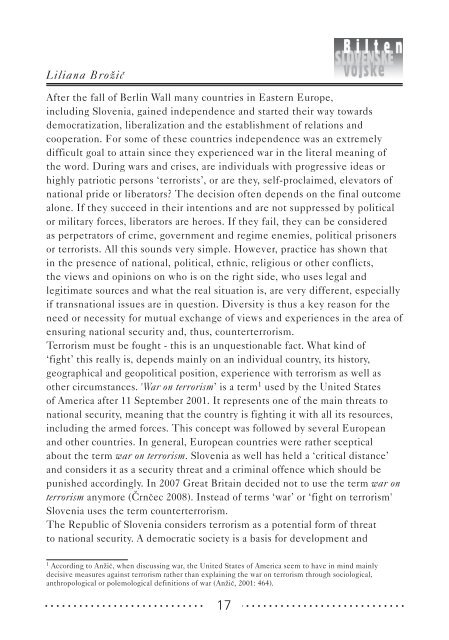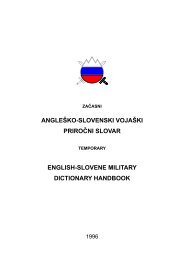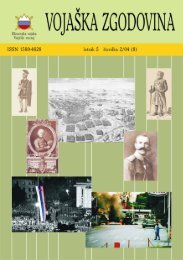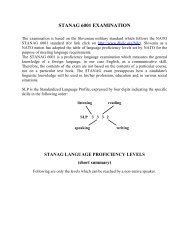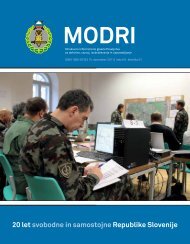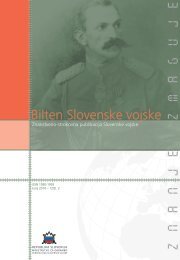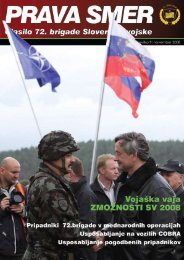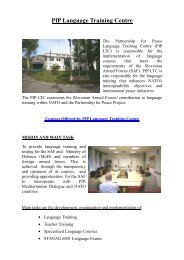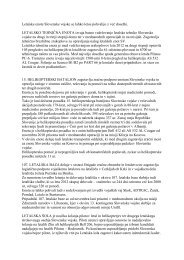bilten slovenska vojske.indd - Slovenska vojska
bilten slovenska vojske.indd - Slovenska vojska
bilten slovenska vojske.indd - Slovenska vojska
Create successful ePaper yourself
Turn your PDF publications into a flip-book with our unique Google optimized e-Paper software.
Liliana BrožiËAfter the fall of Berlin Wall many countries in Eastern Europe,including Slovenia, gained independence and started their way towardsdemocratization, liberalization and the establishment of relations andcooperation. For some of these countries independence was an extremelydifficult goal to attain since they experienced war in the literal meaning ofthe word. During wars and crises, are individuals with progressive ideas orhighly patriotic persons ‘terrorists’, or are they, self-proclaimed, elevators ofnational pride or liberators? The decision often depends on the final outcomealone. If they succeed in their intentions and are not suppressed by politicalor military forces, liberators are heroes. If they fail, they can be consideredas perpetrators of crime, government and regime enemies, political prisonersor terrorists. All this sounds very simple. However, practice has shown thatin the presence of national, political, ethnic, religious or other conflicts,the views and opinions on who is on the right side, who uses legal andlegitimate sources and what the real situation is, are very different, especiallyif transnational issues are in question. Diversity is thus a key reason for theneed or necessity for mutual exchange of views and experiences in the area ofensuring national security and, thus, counterterrorism.Terrorism must be fought - this is an unquestionable fact. What kind of‘fight’ this really is, depends mainly on an individual country, its history,geographical and geopolitical position, experience with terrorism as well asother circumstances. 'War on terrorism’ is a term 1 used by the United Statesof America after 11 September 2001. It represents one of the main threats tonational security, meaning that the country is fighting it with all its resources,including the armed forces. This concept was followed by several Europeanand other countries. In general, European countries were rather scepticalabout the term war on terrorism. Slovenia as well has held a ‘critical distance’and considers it as a security threat and a criminal offence which should bepunished accordingly. In 2007 Great Britain decided not to use the term war onterrorism anymore (»rnËec 2008). Instead of terms ‘war’ or ‘fight on terrorism'Slovenia uses the term counterterrorism.The Republic of Slovenia considers terrorism as a potential form of threatto national security. A democratic society is a basis for development and1According to AnžiË, when discussing war, the United States of America seem to have in mind mainlydecisive measures against terrorism rather than explaining the war on terrorism through sociological,anthropological or polemological definitions of war (AnžiË, 2001: 464).17


